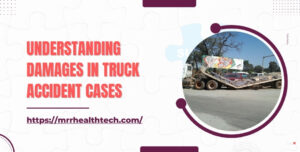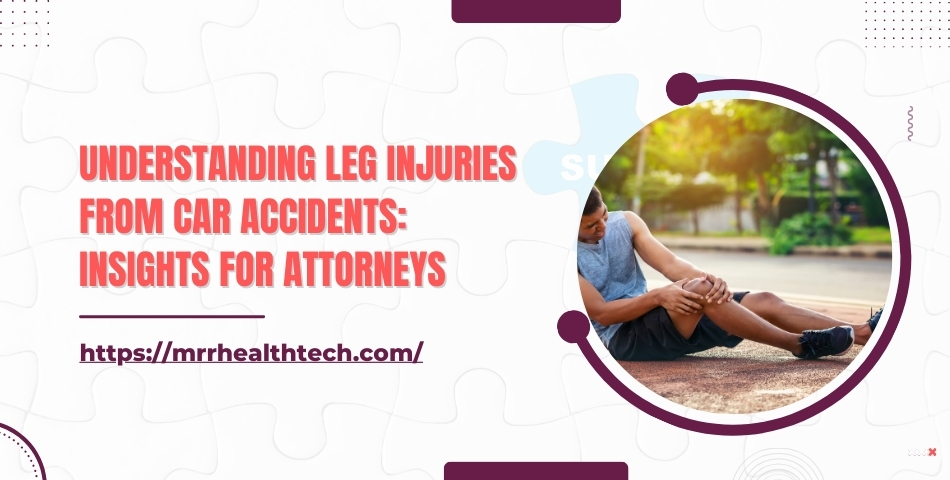Car accidents can be traumatic experiences, often resulting in injuries, property damage, and legal disputes. When a car accident leads to a legal case, deposition is a crucial step in the legal process. A car accident deposition plays a significant role in gathering crucial information, setting the stage for a fair trial, and potentially facilitating settlement. In this guide, we’ll delve into what a car accident deposition is, why it matters, and what to expect during this crucial stage of the legal journey.
What Is a Deposition?
A deposition is a formal legal procedure where individuals involved in a legal case, including witnesses and parties to the lawsuit, provide sworn testimony under oath outside of a courtroom. A court reporter typically records this testimony, which can be used as evidence during the trial. Attorneys from both sides ask the deponent questions to gather information, clarify facts, and understand the case’s details. The purpose of a deposition is to discover and preserve testimony, assess the strength of the case, and facilitate settlement negotiations or trial preparation by gaining a clear understanding of the facts and arguments of all parties involved.
What is a Car Accident Deposition?
A car accident deposition is a formal legal procedure where involved parties, witnesses, and experts provide sworn testimonies under oath. This process occurs outside the courtroom and is usually conducted in a lawyer’s office or a neutral location. A court reporter is present to record the entire deposition, ensuring an accurate account of the testimony. The purpose of a deposition is to gather information and preserve statements that can be used as evidence during the trial.
The Purpose of a Car Accident Deposition
The primary purpose of a car accident deposition is to allow both parties involved in the case to obtain firsthand knowledge of the facts, events, and circumstances surrounding the accident. The deposition helps in:
- Information Gathering: Attorneys use depositions to gather information about the incident, the involved parties, witnesses, and potential evidence.
- Evaluating Credibility: Depositions provide an opportunity to evaluate the credibility and reliability of witnesses and the opposing party’s testimony.
- Case Preparation: Attorneys use the information obtained during depositions to prepare their case strategy, assess the strength of their case, and anticipate the opposing side’s arguments.
- Settlement Negotiations: The insights gained from depositions can guide parties in negotiating a settlement before proceeding to trial.
Get started on your case with us >> Upload Your Case
What to Expect During a Car Accident Deposition
If you are scheduled to participate in a car accident deposition, here’s what you can expect:
1. Oath and Sworn Testimony:
All individuals providing testimony during a deposition are placed under oath, requiring them to answer questions posed to them during the session truthfully.
2. Questioning by Attorneys:
Attorneys from both sides can ask the deponent questions. The questions are designed to uncover facts, clarify details, and understand each party’s perspective regarding the car accident.
3. Court Reporter’s Role:
A court reporter is present to transcribe the entire deposition. This transcript becomes an official document that can be used in court proceedings.
4. Legal Representation:
All parties involved, including witnesses, are entitled to have their attorneys present during the deposition to protect their legal rights and provide guidance throughout the process.
Download Our Deposition Summary Samples
How Do Car Accident Lawyers Use Depositions?
Car accident lawyers use depositions to build and strengthen their case, gather critical information, and prepare for trial. Here’s a detailed look at how car accident lawyers use depositions:
Fact Gathering and Understanding the Case:
During a deposition, lawyers question witnesses, parties involved, and experts to gather information about the car accident, injuries sustained, damages incurred, and other relevant details. This helps lawyers develop a comprehensive understanding of the case.
Assessing Witness Credibility:
Depositions allow lawyers to assess the credibility and reliability of witnesses. By observing how witnesses respond to questions and checking for inconsistencies or contradictions in their testimony, lawyers can gauge the potential impact of these witnesses during the trial.
Discovery of Evidence and Facts:
Lawyers use depositions to discover new evidence and facts related to the case. They may uncover previously unknown information or gain additional insight into the opposing party’s arguments and strategies.
Establishing Key Arguments and Themes:
Through depositions, lawyers can identify key arguments and themes that can be crucial during the trial. They may use the information gathered to formulate and strengthen their case strategy, ensuring they focus on the most compelling points during the trial.
Building a Strong Cross-Examination Strategy:
Depositions provide a preview of how witnesses may testify during the trial. This helps lawyers develop an effective cross-examination strategy to challenge the opposing party’s witnesses and their statements.
Preparing Witnesses:
Lawyers use depositions to prepare their own witnesses for trial. They review the questions and responses given during the deposition, helping witnesses understand the process and the types of questions they may face in court.
Documenting Evidence and Establishing a Record:
The transcript and video recording of depositions serve as valuable pieces of evidence. Lawyers can refer to these records during the trial to refresh witnesses’ memories or challenge inconsistencies in their testimony.
Negotiating Settlements:
Information obtained from depositions can be crucial in negotiating settlements. Having a strong grasp of the opposing party’s position and evidence can help lawyers negotiate favorable terms for their clients.
Educating Clients:
Lawyers use depositions to educate their clients about the strengths and weaknesses of the case. They may review deposition testimony with their clients to help them understand their case’s legal process and potential outcomes.
Conclusion
A car accident deposition is a critical part of the legal process following a car accident. It serves the purpose of gathering information, understanding the case, and preparing for a fair trial. Anyone involved in a car accident case should be prepared for a deposition and understand its importance in building a strong legal argument. Consulting with an experienced attorney can help you navigate the deposition process effectively if you find yourself involved in a car accident case. Being well-prepared and truthful during a deposition is essential for successfully resolving your case.













